View current news articles, commentary, videos and more having an impact on Jewish culture, politics and religion at Rabbi Silverman's Sites to See
Some Rabbinic Thoughts About the Portion Shemini: Lessons for Yom HaShoah and Israel Independence Day
We can learn some important lessons from Parashat Shemini in Leviticus and its accompanying Haftarah for Shabbat (April 10). I believe that they can be applied to the coming important day commemorations that lay ahead of us after Passover, Yom HaShoah, Yom Hazikaron and Yom Haaztmaut. We learn in the Torah that at the August occasion of the 8th day of consecration, when Aaron is inducted as the High Priest, Kohen Gadol that:
…Aaron’s sons Nadab and Abihu each took his fire pan, put fire in it, and laid incense on it; and they offered before the LORD alien fire, which He had not enjoined upon them. וַתֵּ֥צֵא אֵ֛שׁ מִלִּפְנֵ֥י יְהוָ֖ה וַתֹּ֣אכַל אוֹתָ֑ם וַיָּמֻ֖תוּ לִפְנֵ֥י יְהוָֽה׃ And fire came forth from the LORD and consumed them; thus they died at the instance of the LORD.
Then Moses said to Aaron, “This is what the LORD meant when He said: Through those near to Me I show Myself holy, And gain glory before all the people.” And Aaron was silent.
The Baal Turim Commentary (15th Century CE) tells us that Aaron’s sons sinned in six things: 1)They brought a strange fire not instructed, 2) they thought themselves worthy of instructing Aaron and Moses, 3) they were drunk when they were ministering the incense, 4) they had no sons and they were unwilling to get married (TB Yevamot 64), 5) they were making the priesthood into a business venture, and 6) they didn't ask advice from their elders. Sages make great effort to understand how God could take them in their prime, even to the point of blaming them for a commandment not yet made in the Torah. The Nachalat Zvi, for instance, tells us that with regard to getting drunk prior to the ministry of incense, the Torah only informs us later–but that this is not a problem.
We learn an important thing from Dayyenu, he contends, which we just read at Pesach. It says there, "if God had brought us near to Mt. Sinai and hadn't given us the Torah, Dayyenu!" What? Hadn't given us the Torah? How would that have been enough? His answer: when all of us stood at Sinai, the “blemish on our souls from the time of Adam and Eve” left us, and we stood innocent before God with all of our body and soul as a people. Our sages say that the 613 mitzvoth correspond to our 248 bones and muscles (positive mitzvoth) and our 365 tendons and ligaments (restraining us…against the negative mitzvoth) and we knew instinctively therefore in body and soul all of the Tora,h even before it was given! Moses himself tells Aaron that Nadav and Avihu were "great scholars" even more so than they themselves were (in his attempt to comfort his brother Aaron), and therefore they should have known not to be drunk in their incense offering before God. It seems that the assumption of our sages is that a premature death must be the result of a sin or misjudgment by the victim.
The closed system for tragic death and sin and blaming the victim, however, begins to unravel somewhat in the Haftorah that is attached to the Portion Shemini. There, in the book of Sam2, we read how King David retrieves that Torah Ark and covenant which had been taken by the Philistines, and then stored with Avinadav’s family for twenty years. Bringing the ark back to David’s city of Jerusalem with great song and dance the following tragedy occurs:
וַיָּבֹ֖אוּ עַד־גֹּ֣רֶן נָכ֑וֹן וַיִּשְׁלַ֨ח עֻזָּ֜א אֶל־אֲר֤וֹן הָֽאֱלֹהִים֙ וַיֹּ֣אחֶז בּ֔וֹ כִּ֥י שָׁמְט֖וּ הַבָּקָֽר׃ But when they came to the threshing floor of Nacon, Uzzah reached out for the Ark of God and grasped it, for the oxen had stumbled. The LORD was incensed at Uzzah. And God struck him down on the spot for his indiscretion, and he died there beside the Ark of God. What was his indescretion?
Rabbi David Kimchi (late 12th Century commentator) picks up where they left off with Nadav and Avihu in Leviticus and tells us: He wasn't among the Levites whose job it was to carry the Aron on their shoulders but rather he and his brothers used a wagon. Or, perhaps he should have known that the Aron Kodesh could levitate itself as we learned when they crossed the Jordan, that the Ark was carried first by Levites into the water but when their feet couldn't touch the floor of the river, they returned, and Israel was on one bank and the Ark was on the other. Then “the ark crossed with the Levites”… meaning that the ark transported them through the water. If the ark could lift and transport the Levites, then surely it could steady itself!
But not every sage is content with letting Uzzah take the blame. Rabbi Yonathon in TB Sota 35a tells us the Bible reads, "Uzza died with the Aron Kodesh" This tells us that just as the Aron Kodesh with the tablets is eternal, so too is Uzzah eternal grasping it, in the 'world of truth' (the Olam Haba)
Rabbi Yohanon seems to be teaching us that Uzza may have not fully understood his actions. But certainly he did not sin. In fact, he bravely acted to stabilize the ark, so his intentions were pure. And he has earned an eternal existence in the afterlife for his righteousness.
In both cases of tragedy, the survivors are stunned and they react. In the case in Leviticus, Aaron is stunned and responds with depression and silence. Vayidom Aaron can mean he was silent (demama) but it can also mean deadened (yoshvei duma). Tragedy of this nature can depress and leave us speechless, much as did the tragedy in our time– the Shoa. And for many years it did. Survivors took years, even decades, to open up and tell of their experiences. They did so not wishing to dishonor those who died, and to make certain that their witness would be counted.
In the case of King David, he did two things. He first wouldn’t come near the ark and left it for some months, fearful of it being a vehicle of God’s wrath. But he also named the place Peratz Uzza which means ‘where Uzza was set upon.’ He memorialized the tragic fate of Uzza, rather than blaming him, and made it known. Similarly, the Jewish people have done as well by putting up museums, doing oral history projects, and designing school curricula to teach of the unique evil of the Holocaust, and to teach societies to beware of indifference to hatred.
But King David also did something else. He took ‘memorializing’ to the next level by creating a new reality. He brought the Ark to Jerusalem and made a place for it. He sang and danced until his wife, Michal, was embarrassed; he sacrificed offerings and gave people party gifts for having assembled and celebrated a new enshrinement of the Ark. He honored tragedy, by creating a different reality in response to tragedy. He did not get stuck with Post-Traumatic Stress Disorder. He moved on and created a new resilient present, and therein laid the groundwork of a Holy Temple, which his son Solomon would bring to fruition.
We have passed the stage of numbness and silence on the Holocaust, and the Jewish community has been instrumental in fashioning a curriculum around it. We also continue to monitor outrageous claims such as those of PA President Abbas, who maintained that German Jews were responsible for the German anti-Semitism that arose. Additionally, Professor Ruth Wisse has written articulately on the dangers of leaving ‘Holocaust Education’ in well-meaning hands. We must beware of naïve and sometimes cynical uses of it, by those who, at the same time, have little nice to say about the State of Israel. Teaching the Holocaust without teaching about the plucky and resourceful Jewish nation state that was created parallel to it, and that denied Arab efforts to eliminate it several times, in its aftermath, imparts an image of Jews as powerless, victimized and passive, and at the whim of nations in which they dwell. Teaching the Holocaust and universalizing it to all intolerance can be an effective way to sharpen a student’s sense of social justice. However, it just as easily erodes concern for Jews in the modern era (in which anti-Semitism is still very much alive), and worse yet, can be manipulated by some to cast Israelis as the oppressors, colonizers and worse.
King David’s response reminds us that we are perilously far away from the old liberal position of the 1950 and 60’s in the aftermath of the Shoa, which condemned anti-Semitism, and also celebrated a Jewish State which took responsibility for the Jewish people’s collective security and destiny. Paul Newman’s Ari Ben Canaan in the “Exodus” is no longer a primary symbol of a revived Jewish State in the mind of America, but of we as a Jewish community of souls, who know the horrors of the Holocaust and the precariousness of Diaspora existence. We can ill afford to cede ground to those on the extreme left who mourn dead Jews, but then compare a vibrant Jewish nation to pre-World War Two Germany. We should not settle for the mealy-mouth condemnation of discrimination of ‘all minorities’ in response to bald-face anti-Semitism either. Neither should we take our eyes off the extreme right that seems to be gaining traction as the Shoa witnesses become fewer.
We have the communal responsibility to put our Nation-State self-determination as a primary lesson of the Holocaust, and for taking our people’s survival seriously. We have nothing to apologize for, and so many blessings to celebrate in our current time. We should be awe-struck by Israel’s economic, technologic and military independence. And we must guard it against those who refuse to grant Jews their sovereign rights to their historic Homeland, and who selectively and a-contextually use the Holocaust for their own ends.
